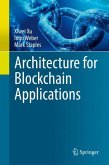
Gebundenes Buch
1st ed. 2019
15. März 2019
Springer / Springer International Publishing / Springer, Berlin
978-3-030-03034-6
| eBook, PDF | 65,95 € |
eBook, PDF
5. März 2019
Springer International Publishing
Ähnliche Artikel

17,99 €
Versandfertig in 2-4 Wochen
Broschiertes Buch
an enthralling, page-turning thriller full of dark family secrets
19. Januar 2021
Little, Brown Book Group
652076

12,99 €
Versandfertig in 2-4 Wochen
Broschiertes Buch
The addictive thriller from the author of He Said/She Said and Richard & Judy Book Club pick
9. Juli 2020
Hodder & Stoughton / Hodder Paperbacks
462516

10,99 €
Versandfertig in über 4 Wochen

13,99 €
Versandfertig in 2-4 Wochen



19,99 €
Versandfertig in 2-4 Wochen
Broschiertes Buch
2. Februar 2015
The History Press Ltd

12,99 €
Versandfertig in 2-4 Wochen

Ähnlichkeitssuche: Fact®Finder von OMIKRON


